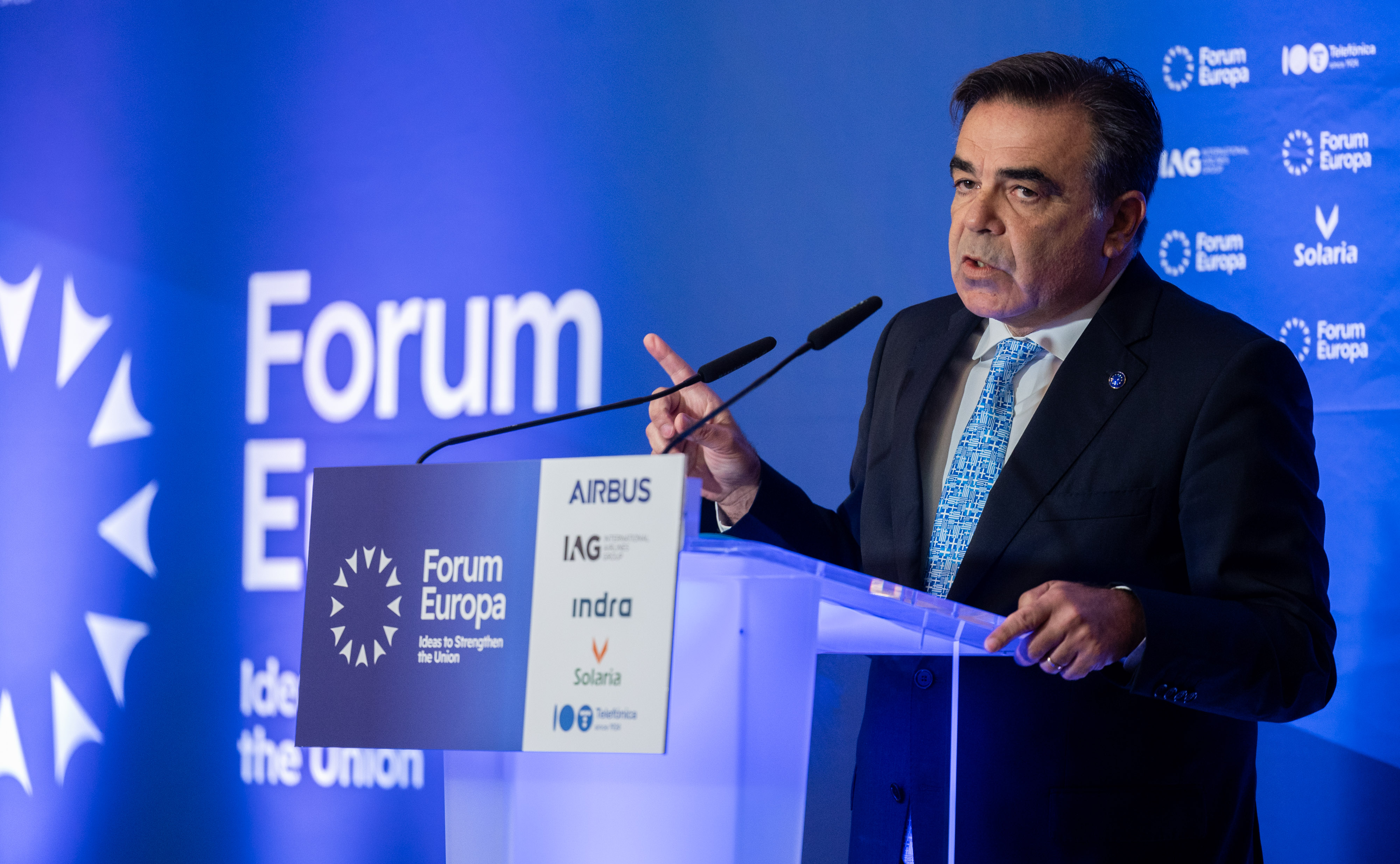The Vice-President of the European Commission for Promoting of Our European Way of Life, Margaritis Schinas, stated this Thursday at the Forum Europa in Brussels that the Europe of defence and security needs a prior agreement between France and Germany that establishes the parameters for the rest of the Member States.
During a meeting organised by the New Economy Forum in the EU capital, Margaritis Schinas said that in the legislature that will begin after the elections on 9 June, one of the important issues will undoubtedly be security and defence.
Mr. Schinas said that in the last five years "Europe had reached adulthood" and had overcome "the era of innocence and naivety", in which it thought it could always have cheap energy from Russia, and it did not matter if it did not produce face masks, pharmaceuticals or microchips.
What happened in the legislature "shattered these illusions" because when everyone was looking for face masks or respirators, "we had to go to the back of the queue with everyone else to buy". Similarly, "the first thing Russia did when it invaded Ukraine was to instrumentalise energy against Europe", he recalled.
And in the area of security and defence, he said that Europeans cannot rely on "always having an external shield or umbrella" to protect us, as has been the case until now with the United States, or NATO.
As to how the construction of a Europe of defence can be realised, Schinas argued that "what we need first and foremost is a major political agreement on defence between France and Germany".
Such an agreement, he said, would set the parameters, "define what we want to do, who does what and with what money", and serve as a reference for the whole of Europe. The Franco-German agreement "should be part of the strategic agenda of the European Council", he said. "Only if we have that agreement can we move on to the next stage, which would be implementation".
He also expressed his conviction that now, in the midst of Russian aggression against Ukraine, it is possible to move forward with this initiative, just as the agreement on the purchase of vaccines was possible at the time.
However, he called for "an honest debate" on defence and security in the European Union, so that citizens go to the polls with a clear understanding of what the European institutions think on this issue, "and we should find a way to submit it to their will, and later to the newly elected European Parliament’, he concluded.







